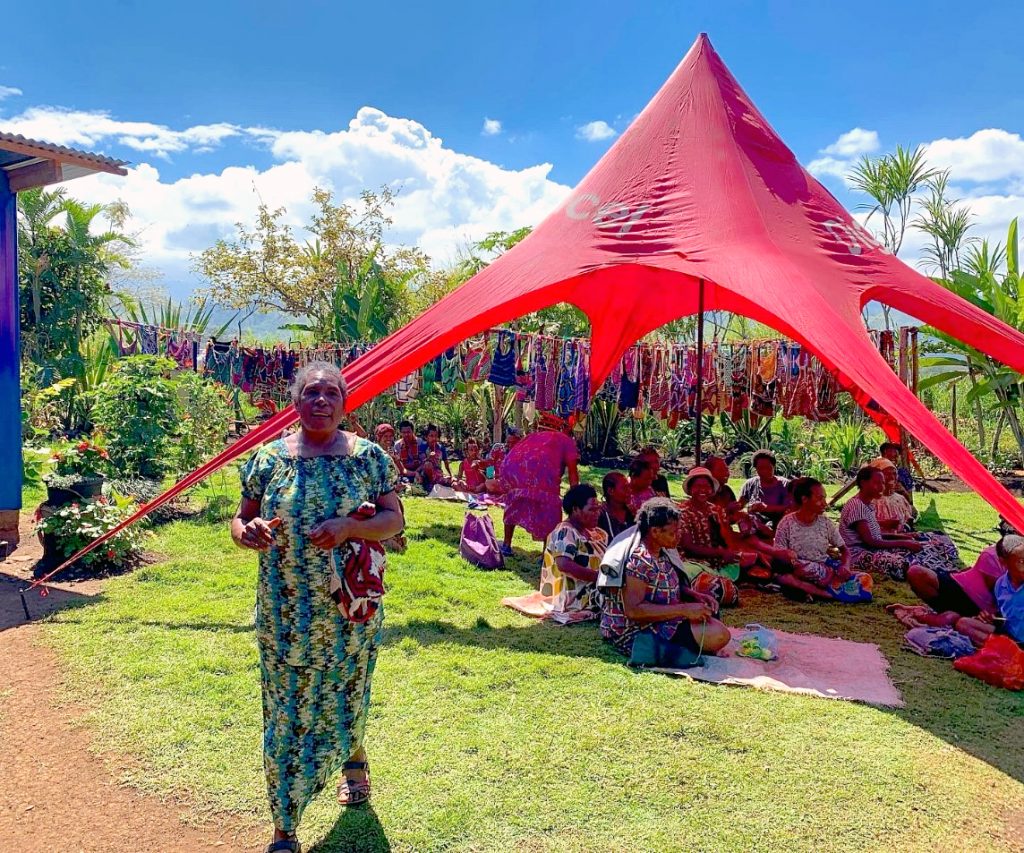Globally, creative industries create meaningful employment and preserve culture; they deserve resources to help fulfil women’s economic equality. We raise our voice for the undervalued supply chains like bilum that help achieve this.
Anthea Smits, CEO The Difference Incubator
International Women’s Day is a time I usually reflect on two ideas: Firstly the incredible place of privilege I find myself in, and secondly, those who don’t live with the same privilege who might need our voice. I feel like I have the advantage of being able to ride the sacrifice of incredible women and men from history who have fought for the rights of women, and I get to eat from the table they paid a massive price for. To these men and women who fought for women’s rights today, I say THANK YOU.
I might live with this privilege, but many don’t–what’s their story? A lot of our work at TDi at this time is found amongst women who have little rights to make their own way; their work is considered insignificant and ‘micro’. When they do put their head up and succeed, they live in a system that ensures they aren’t recognised or celebrated–in fact, quite the opposite.
In 2019 our work took us to the Highlands of Papua New Guinea to work with bilum weavers. Bilum is the traditional weave PNG women have done for centuries to make bags. All Papua New Guineans including the men proudly carry bilum. We were contracted to look at the supply chain of bilum and the possibility for new commercial opportunities.
By most, bilum is considered a ‘cottage industry’ and ‘pocket money for the women’. But as we dug deeper, we discovered that for some this was far from pocket money or cottage industry, these women are artists. Bilum has the opportunity to help build healthy businesses as the developed world grows to love this traditional handicraft and others like it.

It fascinated us that creative industries aren’t included in Papua New Guinea’s GDP, in fact there is very little data to understand the economic impact of creative industries in PNG.
This is staggering considering that creative industries represent US$2.250 billion in the global economy.*
Other interesting facts from the World Economic Forum’s study found that creative industries are more inclusive employers employing more youth (15-29 years) than any other sector, employ a higher percentage of women compared to other sectors globally and small business makes up a large portion of this sector as well. In the US artists are 3.5 times more likely to be self-employed.
Why is this important? There’s an old saying we measure what we value. The lack of measure around this sector suggests an undervaluing of ancient practice. It’s important because when industry is undervalued in a system it doesn’t get the resource or investment required to help it grow to full potential.
The development of handicrafts and creative industries has further significance because it is often also about preserving traditional cultural knowledge. Handicrafts has the opportunity in many economies for the establishment of small business, meaningful sustainable employment, and empowering women to stay in community, as well as preserving traditional knowledge and showcasing culture.
What other value might we be missing out on because of our assumptions and bias?
We raise our voice for the undervalued supply chains that create meaningful employment, preserve culture, and pass on traditional knowledge. These supply chains deserve resources to fulfil the potential for women’s economic equality, in PNG and beyond.
References:
*Source: World Economic Forum, 2015). This includes all creative industries including visual arts, media, TV, music etc. Other research suggests Handicrafts contributes around US$32 Billion to the global economy (The Aspen Institute Artisan Alliance) but this is a difficult figure to nail down when whole economies don’t even count handicrafts in their GDP.
Word Economic Forum – What is creativity worth to the world economy
https://www.weforum.org/agenda/2015/12/creative-industries-worth-world-economy/
The Aspen Institute Artisan Alliance
http://www.artisanalliance.org/